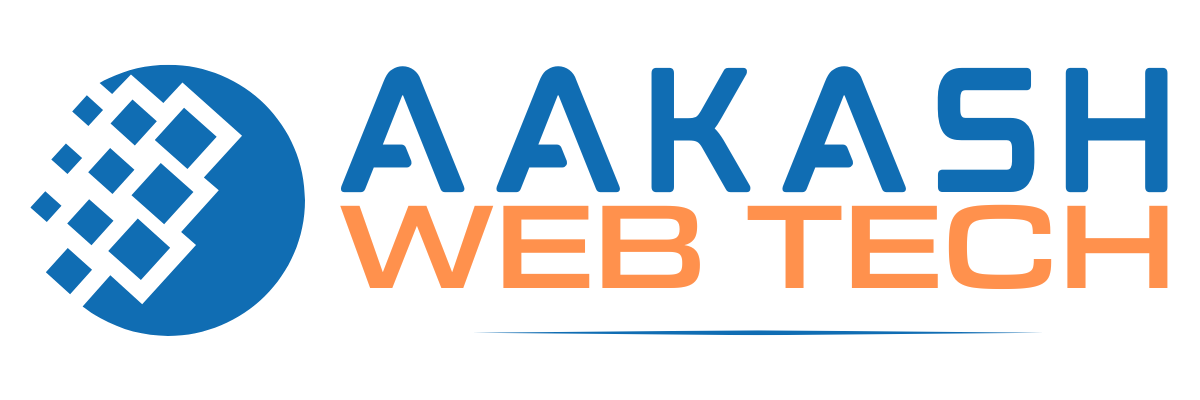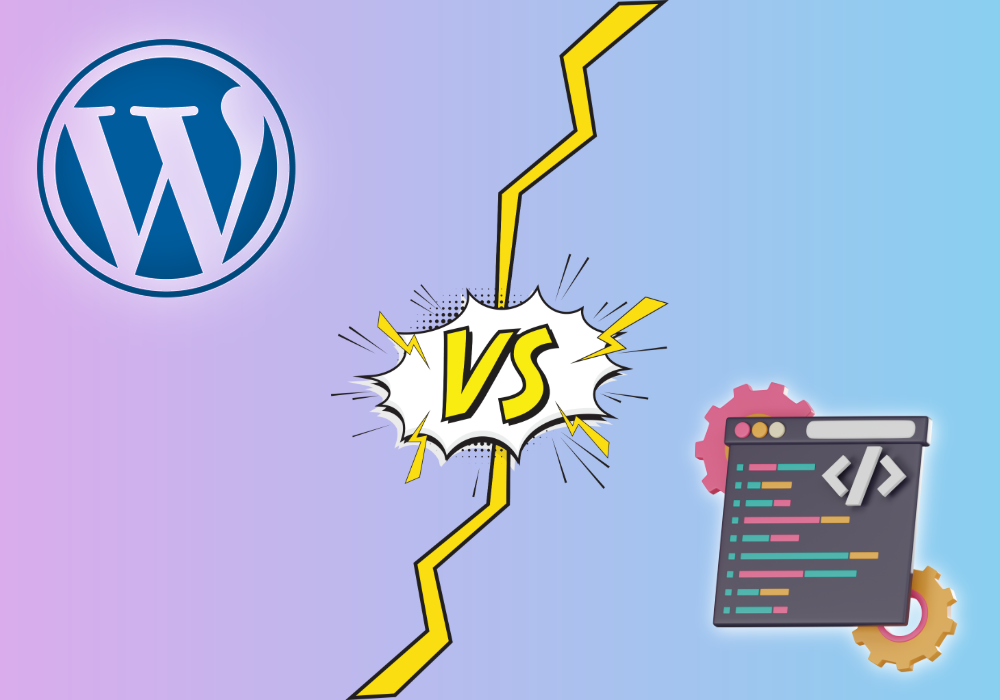When planning a new website, one of the biggest questions every business owner faces is: should you choose WordPress or go for custom development? Both have strong advantages, but the right choice depends on your goals, budget, and how you plan to manage your site long-term.
As a web developer who has worked extensively with WordPress, WooCommerce, PHP, and ASP.NET, I often help clients make this very decision. Let’s break it down in clear, practical terms so you can choose confidently.
What Is WordPress?
WordPress is a content management system (CMS) that powers over 40% of all websites globally. It allows businesses to build and manage websites without needing to code everything from scratch.
It’s built with PHP and MySQL at its core, and its modular system makes it easy to add functionality using themes and plugins — from contact forms to eCommerce stores.
In short, WordPress gives you a foundation that’s already coded, tested, and supported by a massive global community. You can build upon it, customize it, and manage it easily without diving deep into programming.
What Is Custom Development?
Custom development means building a website entirely from scratch — typically using frameworks like ASP.NET, Laravel, or pure PHP. Every feature, layout, and functionality is coded manually, giving complete control over design, performance, and scalability.
This approach is best suited for businesses with very specific requirements that can’t be met by existing CMS solutions. It’s more time-intensive, more costly, but also more flexible in the long run — if handled properly.
The Key Differences Between WordPress and Custom Development
Let’s look at the main factors that usually influence the decision.
1. Speed of Development
- WordPress: Building a professional WordPress site can take days or weeks, depending on complexity. You can use pre-built themes and plugins to accelerate development.
- Custom Development: Takes longer because everything — from layout to admin panels — must be coded manually. It’s a slower process but offers full flexibility.
If your business needs to launch fast, WordPress wins easily here.
2. Cost
- WordPress: Usually more affordable. You pay for hosting, a theme (if premium), and developer time for customization.
- Custom Development: Involves higher upfront costs since the code, structure, and features are built from scratch.
For small to mid-sized businesses, WordPress often provides a high return on investment because it delivers professional results without large budgets.
3. Customization & Flexibility
- WordPress: Offers flexibility through thousands of plugins, but you’re somewhat limited by its framework. Some complex functions can be added through custom plugins, but deep modifications might get tricky.
- Custom Development: Offers complete freedom. Developers can build any feature, any workflow, and fully optimize for performance, SEO, or security — without being limited by an existing CMS structure.
If you need something unique — like a custom dashboard, booking engine, or internal tool — custom development is the way to go.
4. Maintenance & Updates
- WordPress: Requires regular updates — for the core, themes, and plugins. Most updates are simple, but occasional plugin conflicts can occur. The benefit is that you can manage most updates without technical help.
- Custom Development: Maintenance depends on your developer or team. It’s less about updates and more about ongoing optimization, as everything is custom-coded.
In short, WordPress requires routine attention, while custom sites need professional maintenance when changes are made.
5. Security
- WordPress: Security depends heavily on plugin quality, update frequency, and hosting. Because it’s so widely used, it’s also a common target for hackers. With good hosting, firewalls, and regular updates, it can be very secure.
- Custom Development: Offers more control over security since everything is coded in-house, reducing exposure to third-party vulnerabilities. But it also depends entirely on your developer’s expertise.
If built properly, both can be secure. But a custom-coded website allows for deeper security customization.
6. Performance
- WordPress: Can be very fast with the right setup, but performance can degrade if too many plugins are installed or if the theme is poorly optimized.
- Custom Development: Typically faster by default because there’s no excess code — only what’s needed for your specific functions.
For speed-critical sites (like SaaS platforms or large databases), custom development performs better. For business or portfolio sites, a well-optimized WordPress build is more than enough.
7. Scalability
- WordPress: Scales well for small and medium websites — even large content-based platforms. However, as complexity grows, maintaining plugin compatibility and database structure can get challenging.
- Custom Development: Scales easily when built with a strong architecture. Ideal for businesses that expect rapid growth or need deep integrations.
So, if you plan to grow steadily and need future flexibility, custom development provides a better foundation.
When WordPress Is the Better Choice
WordPress is ideal when:
- You need a professional site quickly and affordably
- You want to manage content yourself without coding
- Your business requires standard features like pages, blogs, contact forms, or online stores
- You value design flexibility but not heavy customization at the code level
It’s perfect for corporate websites, blogs, portfolios, and small eCommerce stores.
When Custom Development Is Worth It
Custom development is best when:
- You have very specific functionality not possible with existing plugins
- You want complete control over performance, scalability, and backend structure
- You plan to build a web application or internal tool, not just a brochure site
- You can invest more upfront for a tailored, long-term solution
If your website is meant to power business operations — not just showcase them — custom development offers unmatched control.
A Practical Example
Imagine a small business that needs an online booking system.
With WordPress, you could use a booking plugin like Bookly or Amelia, customize it a bit, and go live quickly.
Now imagine a company that manages thousands of vendors, payments, and users — with advanced permissions and reporting. That system would quickly outgrow WordPress plugins. In that case, a custom-built application in ASP.NET or Laravel would be a smarter long-term investment.
The Middle Ground: Hybrid Solutions
Sometimes, the best answer is not choosing one or the other, but combining both.
For example:
- The main website runs on WordPress for easy content management.
- A separate custom web application handles specialized functions (like user dashboards or order tracking).
This hybrid approach gives the best of both worlds — usability and flexibility — without overcomplicating your setup.
Making the Right Choice for Your Business
Ultimately, the choice depends on:
- Budget: WordPress wins for affordability.
- Timeline: WordPress again, for faster launch.
- Complexity: Custom development for unique functionality.
- Growth plans: Custom is better for large-scale scalability.
- Ease of use: WordPress, hands down, for content control.
If you’re unsure, it helps to talk to a developer who understands both worlds — someone who can assess your needs, not just push one solution.
As a web developer with experience in WordPress, WooCommerce, PHP, and ASP.NET, I help businesses decide whether a WordPress site or a custom-built solution fits their goals best.
Some clients come to me thinking they need complex custom coding, but after a consultation, we discover that a well-structured WordPress setup can do everything they need — faster and more cost-effectively. Others truly need something custom, and I build it from the ground up to match their exact requirements.
If you’re planning a new website and unsure which route to take, I’d be happy to help you evaluate your options and choose what’s best for your business — not just technically, but strategically.
Final Thoughts
The WordPress vs Custom Development debate isn’t about which is better overall — it’s about which is better for you.
WordPress offers speed, convenience, and cost efficiency, while custom development offers control, performance, and scalability.
Both paths can lead to a powerful, professional website — as long as they’re guided by the right strategy and executed with care.
If you’re ready to make that decision, make it an informed one — and build something that truly supports your business vision.

